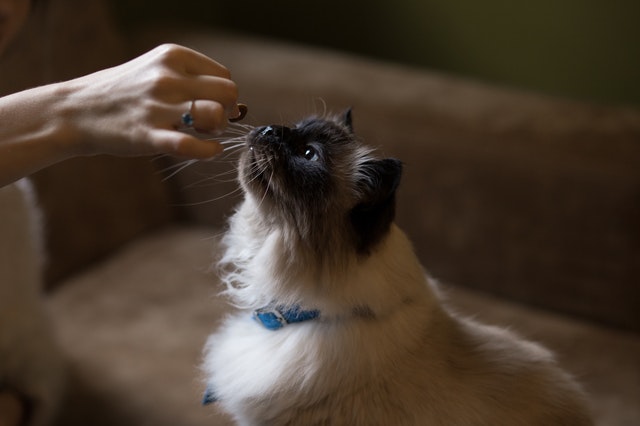Debunking the Myths on What Cats Can’t and Can Eat
It is a common misconception that cats are house princesses (or princes) who must be carefully fed the most pristine food.
But did we forget that they came from a range of feral cats?
When cats are left to their own devices, they instinctively know how to hunt (not that we want to encourage this behavior in the suburbs!).
Even as pets, cats have the opportunity to sneak away and find their own food.
Have you ever let a neighbor's cat come in to take refuge with you in the hope of a second dinner?
This puts them at risk from eating anything that could be dangerous to their health.
Your cat's safety is your priority. This article will help you protect your cat by telling you what not to feed your cat. We'll also go over some foods that shouldn't be lying around as they can be consumed without your knowledge.
By examining the nutritional content of each named food, we can determine what makes it unhealthy for your cat.

Image source: Pexels
7 foods your cat can't eat
1. Onions and garlic
Onions and garlic in all forms are dangerous to your cat's health. If you consume even a small amount of it, it can place your cat in a life threatening situation.
The adverse effect on your cat's system is that the red blood cells are broken down, which leads to anemia.
2. Dairy products
This comes as a little surprise to many people. Our childhoods are full of images of cats being given milk. We've seen it in picture books, on television, and in cartoons. So what could be wrong with feeding your cat some milk?
Cats are lactose intolerant and have difficulty digesting milk and dairy products from other animals. Giving them dairy products can lead to upset stomach and diarrhea and is not optimal.
3. Chocolates
Like dogs, chocolate can be deadly to cats. The only difference between the two is that a cat wouldn't eat this on its own. It is more likely that someone is feeding chocolate.
Theobromine in all types of chocolate is a dangerous element that will affect your cat's health from consuming chocolate. Some of its side effects include tremors, seizures, liver failure, and possibly death.
4. Dog food
You shouldn't feed your cat dog food for obvious reasons. Both animals are built differently and have different nutritional needs to stay healthy.
While your cat nibbles on Fido's dinner every now and then, if you make them a steady source of food, it will lead to severe malnutrition. This is because dog food doesn't contain the necessary nutrients your cat needs to stay healthy.
5. Liver
It is okay to feed your cat small amounts of liver. The problem is feeding them in large quantities on a regular basis.
The liver is rich in vitamin A, which can be harmful to cats if they consume too much of it. It leads to vitamin A toxicity, which causes bone problems and even death.
6. Yeast dough
Yeast is added to the dough so that it can rise before baking. If your cat eats dough before it rises, the dough will rise in the stomach.
The ASPCA stated that this can cause pain and discomfort for your cat as it allows them to stretch their belly beyond their limits.
The fermentation process, during which the dough rises, also leads to alcohol production. Alcohol is dangerous to cats and can cause alcohol poisoning.
7. Raw meat
The issue of whether or not to feed cats raw meat is creating a serious debate among cat lovers. While some have no problem with it, others would never try because of the risks involved.
In all fairness, there are many risks associated with feeding your cat raw meat. The most common is the risk of bacterial infection. Other risks are taurine deficiency, vitamin E deficiency, vitamin A toxicosis, yellow fat disease, etc.
Fortunately, these can all be avoided due to proper handling and storage of your meat. People are reluctant to put their cats on a meat diet because they are at risk of infection and their cats could suffer from an unbalanced diet.
By getting your meat from a reputable source, processing it properly, storing it, and adding other necessary nutrients to your cat's diet, you can successfully put them on a raw cat diet that offers many benefits.
Conclusion
In this article, we discussed 7 foods your cat shouldn't eat and how their consumption can affect your cat's health.
We also covered a popular topic of whether or not to give your cat a raw diet. We have concluded that feeding your cat raw meat is okay under the following conditions:
- The meat is processed and stored accordingly.
- You supplement the meat with other foods to help balance your cat's diet.
Pets can migrate and eat what they shouldn't. For this reason, if you think your cat may have consumed something dangerous, we recommend that you keep your veterinarian's number close by.
About the author:
BIO: Melissa Smith is an animal lover and writes about everything related to pets for Raw and Fresh. She loves her pug Samson and her Chester cat, and aptly calls them Chester.
Comments are closed.